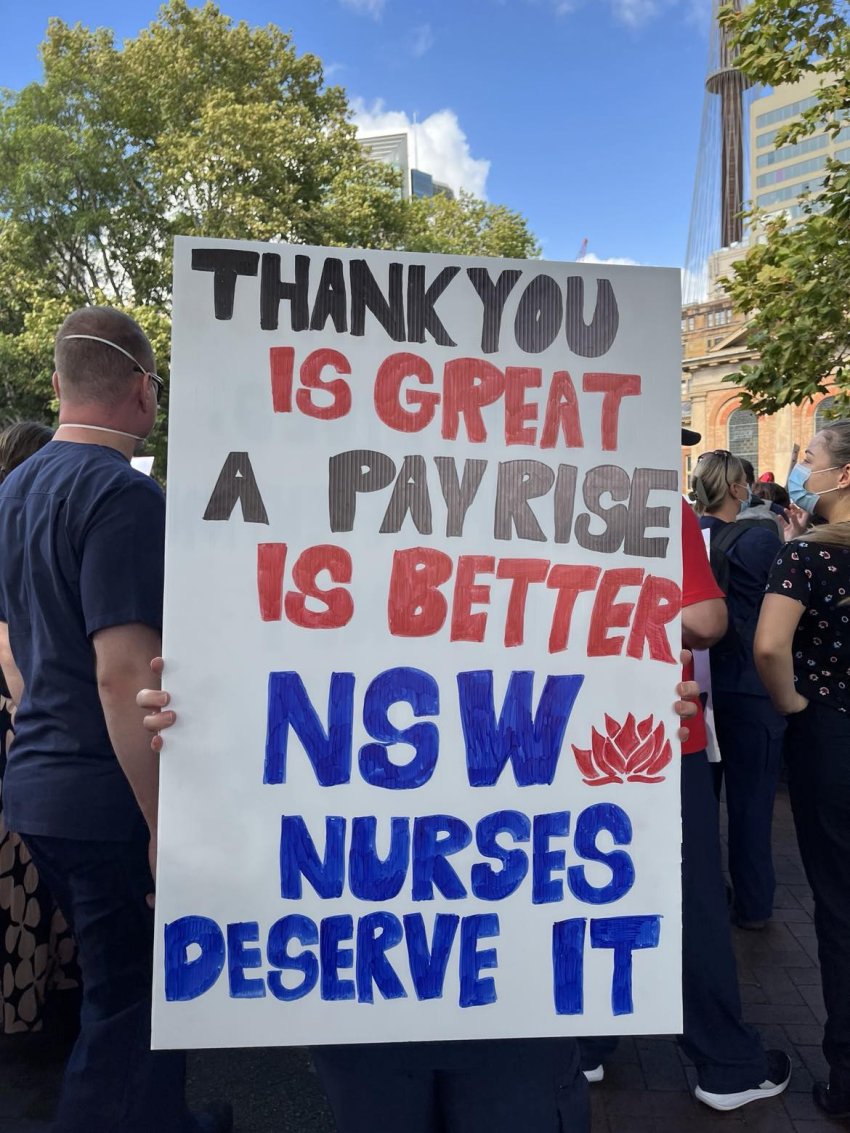
NSW Labor is refusing to agree to pay medical professionals at the same rates as their counterparts, even after the same people brought us through the pandemic. They have broad support from the public for their pay and conditions claims.
The NSW Nurses and Midwives Association (NSWNMA) released a poll in December, which shows overwhelming support for their pay claim.
NSW Premier Chris Minns and Health Minister Ryan Park have a substandard pay and conditions offer and the table and are refusing to budge, the NSWNMA said.
Analysis of the polling in marginal electorates by the Redbridge Group revealed 70% support for the union’s 15% plus super pay rise bid, while NSW Labor has refused to negotiate past offering 3% over three years, including super.
The poll revealed 71% of Labor voters, 66% of Coalition voters and 90% of Greens voters back the NSWNMA in their fight to bring NSW into line with other states’ pay and conditions for these professionals.
On November 24, 10,000 nurses and midwives went on strike. Strikers noted that not only are NSW nurses and midwives the lowest paid, they have the worst conditions.
One Queensland nurse stated: “We always had the required staff and staff were not expected to push beyond reasonable workloads … NSW [is] seriously under-resourced. We don’t have the equipment we need; we don’t have access to education and support and we don’t have the staff.”
Meanwhile NSW ministers, including Park, enjoy six figure salaries with generous super and allowances.
They also enjoy government cars and parliamentary parking, which makes Minns’ decision to end free staff parking for health workers at major regional and metro public hospitals last February — leaving staff liable for thousands of dollars a year in fees — even more unconscionable. Minns has no problem with a predominantly female workforce leaving late shifts and walking through unsafe areas at night.
No wonder the Health Services Union’s (HSU) Special Report last July found “the NSW Health workforce at breaking point”.
The HSU’s report found that more than 86% reported staffing shortages in their departments; 62% said current staffing levels have created safety risks for themselves and their colleagues; more than half reported not having the necessary resources to do their jobs effectively; and a significant portion of health workers were considering leaving, with nearly 60% indicating that the current workplace culture makes them less likely to stay.
Meanwhile, psychiatrists’ pay and conditions are so poor they have had to hand in their resignations, citing patient safety.
At least 198 of 295 staff specialist psychiatrists will resign on January 21, unless an agreement can be reached with NSW Health.
The work will fall to GPs. Dr Rebekah Hoffman, from the Royal Australian and New Zealand College of Psychiatrists NSW&ACT, said although GPs “absolutely have the skills to manage patient mental health problems”, the inability to reach an agreement will trigger a mental health crisis.
Psychiatrists in NSW are seeking a 25% pay rise over three years with improved conditions, to catch them up with counterparts in other states.
NSW Labor’s contingency plan is to contact agencies to recruit private sector medical specialists on temporary contracts at “crisis rates” — up to 300% higher, plus accommodation and allowances, while calling the public sector workers’ pay demands “unaffordable”.